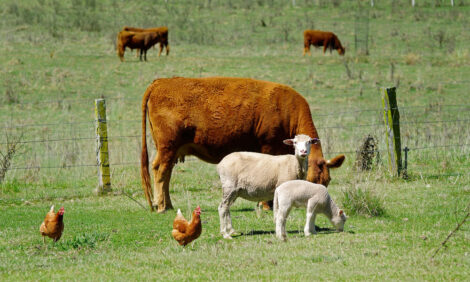



Rabobank Report: Look East for European Growth
EU - Food and agri companies should look to the new EU member states for growth, according to a new report from Rabobank Food and Agribusiness Research.These nations will be be the most dynamic European markets in the next five to 10 years, as farmers seek to boost productivity to counteract the eroding positive effects of the Common Agricultural Policy (CAP).
Reforms to the CAP, which are expected to come into effect in January 2014, will see income support in the form of direct payments continue to be phased in in the new member states, although the increments will not be as significant as when direct payments were first introduced.
This, coupled with fixed rising costs, caused by an acceleration in asset appreciation - for example, land prices in Poland almost tripled in the period 2004 to 2012 - will increase farmers' urgency to boost production to meet their income needs, and could lead to widespread consolidation of farms in new member states.
"The potential to increase agricultural production in the new member states is enormous," said Rabobank analyst Harry Smit.
"Yield gaps - the difference between the technically feasible yield and the actual average yield - in the new member states are large compared to the old member states. Therefore, in the coming years, farmers in the new member states can be expected to utilise this potential and increase productivity, and thus production, to maintain an acceptable income."
The speed of production growth will vary from country to country because direct payments are set to rise by different levels in different countries - in Bulgaria and Romania, for example, payments will increase by more than 50 per cent, while the Czech Republic, Hungary and Slovenia will see rises of less than 10 per cent.
There will also be differences between sectors. Arable farming, which is less capital-intensive and has a shorter production cycle, should see rapid growth while beef production is set to remain static.
In the old member states, where yield gaps are much lower, changes in the CAP are expected to have little impact on agricultural production. With the exception of sugar, market management remains unchanged and European support prices remain below world market prices.
However, individual farm incomes could be seriously affected, due to the redistribution effects of moving towards more uniform direct payments per hectare, with the most significant decline in income support being felt by farmers with historically high production per hectare, such as dairy farmers.
Reforms to the CAP are due to be agreed during the first half of 2013, with the European Commission looking to harmonise payments to farmers between member states and more focus on environmental measures such as set-aside and crop rotation.
The changes are likely to be affected by national wrangling over the EU budget and the European Parliament will look to water down the proposals and introduce a stronger safety net than currently proposed.











